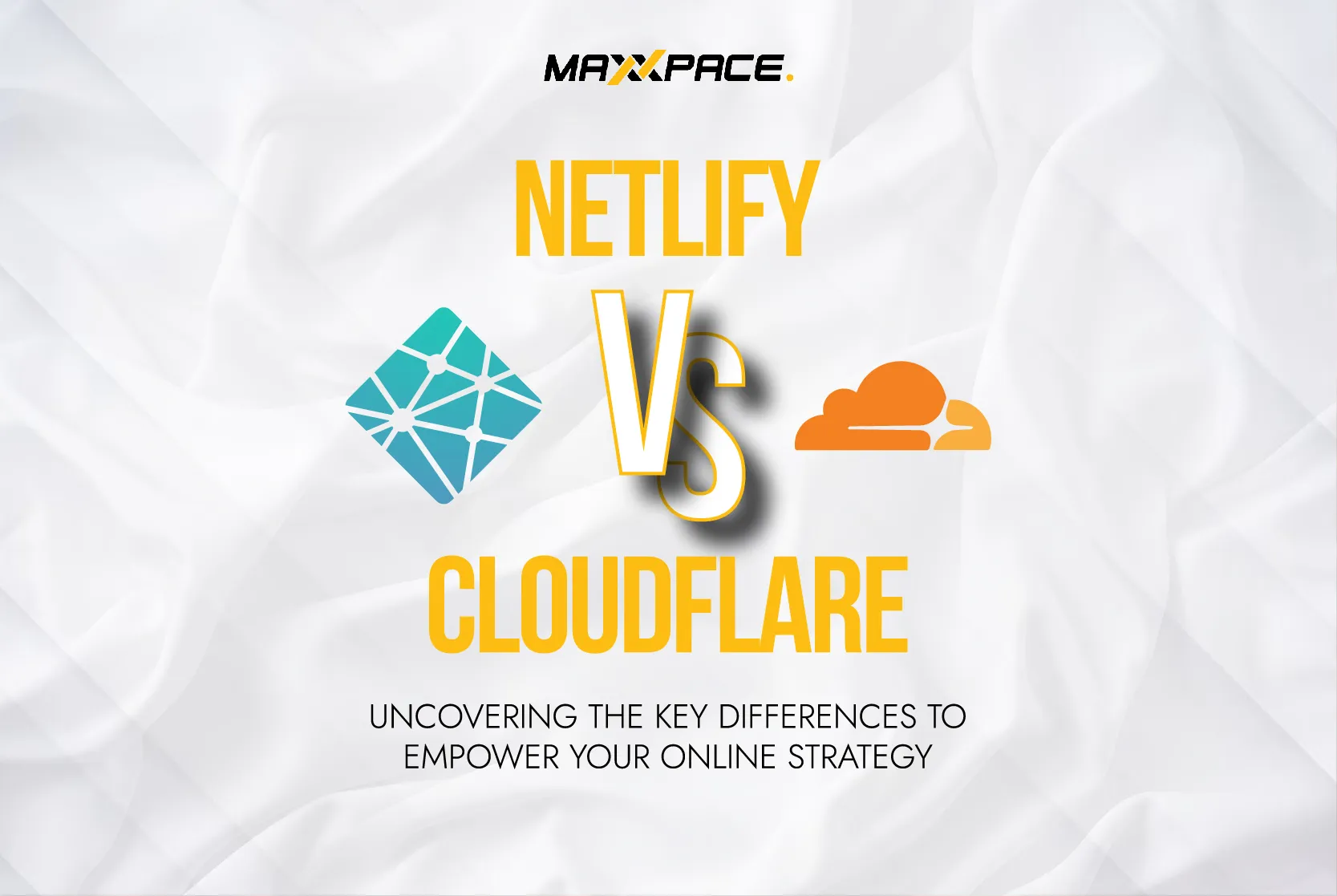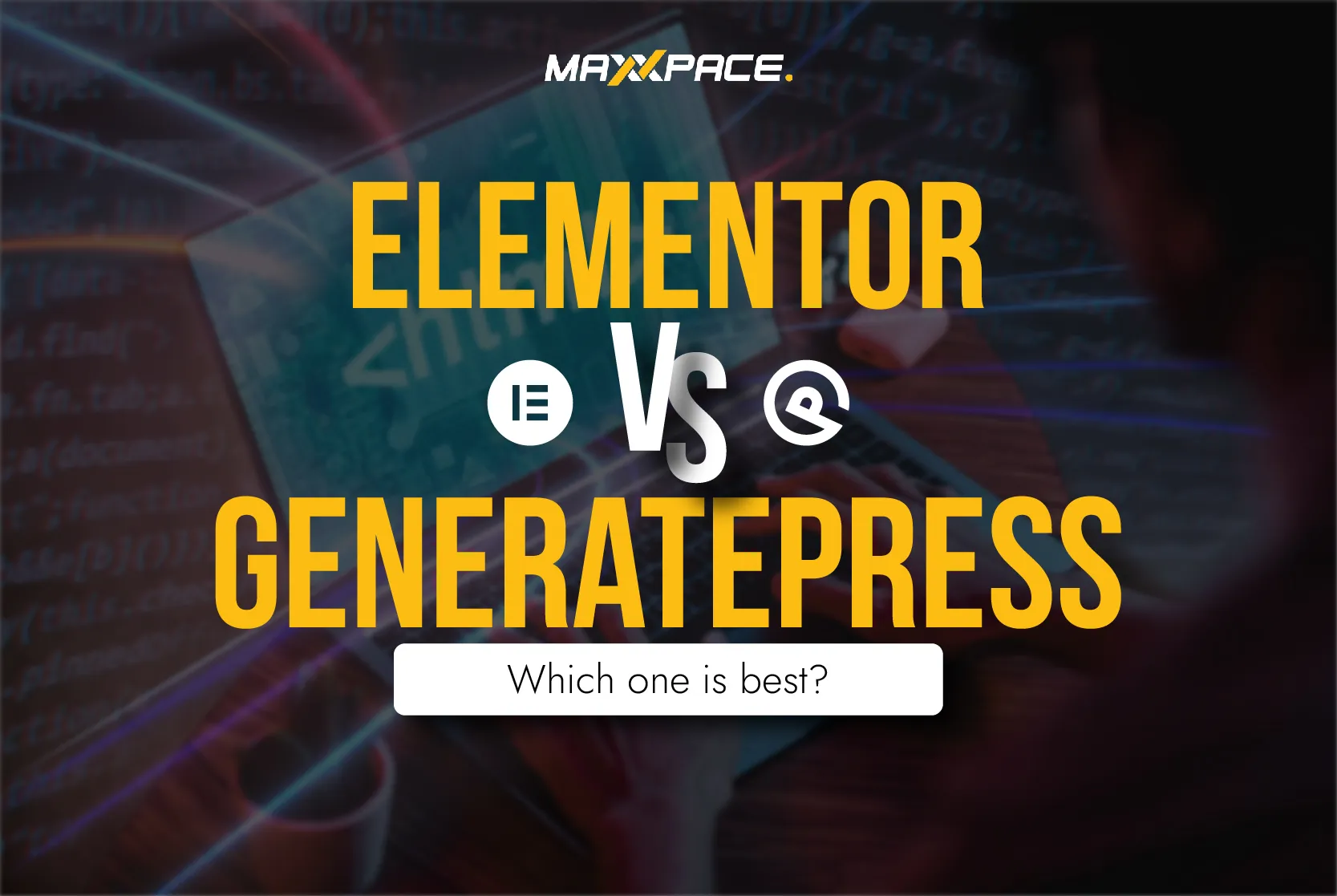
- Posted April 26, 2024
- By admin
- 0 Comments
Netlify vs Cloudflare: Uncovering the Key Differences to Empower Your Online Strategy
In the era of web hosting and content delivery, the choice between Netlify vs Cloudflare often stands as a pivotal decision for businesses and developers alike. Both platforms offer a suite of services designed to optimize website performance, security, and scalability. Despite similarities, there are key differences between them, and it’s important to understand these differences before making a choice. This comprehensive blog will explore the contrasting features and strengths of Cloudflare & Netlify, empowering you to make an informed choice tailored to your specific needs and objectives. Let’s compare Netlify and Cloudflare to see which one comes out on top in different situations.
What is Cloudflare?

Let’s start with Cloudflare’s features and advantages in the Netlify vs Cloudflare debate. Cloudflare is a leading cloud-based platform that provides a suite of services to enhance website performance, security, and reliability. Founded in 2009, Cloudflare has become a go-to solution for businesses and individuals looking to optimize their online presence. With its robust infrastructure and cutting-edge technology, Cloudflare enables users to accelerate and protect their websites, applications, and APIs.
Cloudflare Core Features
Cloudflare offers key features, making it an ideal choice for website owners and developers, including:
- Cloudflare CDN: A content delivery network that distributes content across multiple servers worldwide, ensuring fast loading times and reduced latency.
- Security features: Advanced security measures, such as web application firewall (WAF), SSL encryption, and DDoS protection, to safeguard against cyber threats.
- Serverless functions: Support for serverless computing, enabling developers to build and deploy scalable applications without worrying about server management.
- Dynamic features: Dynamic content optimization, caching, and compression to improve website performance and user experience.
- Continuous deployment: Integration with popular development tools like Netlify to streamline the development and deployment process.
Cloudflare Advantages
The advantages of embracing Cloudflare extend far beyond its feature set. As a full-stack platform, Cloudflare Pages and its suite of services provide developers with a comprehensive toolkit to bring their visions to life. Whether it’s exporting Async Functions for asynchronous processing, orchestrating Backend Functions for synchronous operations, or harnessing the power of Full-stack Cloudflare Pages, the platform offers unparalleled flexibility and scalability. Moreover, Cloudflare’s robust security features set it apart as a trusted guardian of digital assets, shielding websites from DDoS attacks, malicious bots, and other cyber threats.
Cloudflare offers several advantages that make it a popular choice among developers and businesses:
- Faster page loads: Cloudflare’s CDN and caching capabilities ensure faster page loads, improving user experience and search engine rankings.
- Enhanced security: The robust security features of Cloudflare provide an additional layer of protection against cyber threats and attacks.
- Scalability: Its serverless architecture enables developers to build scalable applications without worrying about server management. Integration with popular platforms: Cloudflare integrates seamlessly with platforms like Netlify, making it a preferred choice for front-end developers.
- Cost-effective: Cloudflare offers a cost-effective solution for businesses, eliminating the need for expensive hardware and infrastructure investments.
In addition to these advantages, Cloudflare also offers features like full-stack Cloudflare pages, Cloudflare sites, export async functions, backend functions, and synchronous functions, making it a comprehensive platform for developers and businesses alike.
By leveraging Cloudflare’s features and advantages, developers can build fast, secure, and scalable applications, while businesses can improve their online presence and user experience. Whether you’re a front-end developer or a business owner, Cloudflare is worth considering for your next project.
What is Netlify?

Netlify is a leading cloud-based platform that enables developers to build, deploy, and manage modern web applications with ease. Founded in 2014, Netlify has become a go-to solution for frontend developers and businesses looking to streamline their web development workflow. With its robust infrastructure and cutting-edge technology, Netlify, a platform for frontend developers, provides a seamless platform for building fast, secure, and scalable web applications.
Netlify Core Features
Netlify offers a range of features that make it an attractive choice for developers and businesses. Some of the core features include:
- Serverless functions: Support serverless computing, enabling developers to build and deploy scalable applications without worrying about server management.
- Custom domain: Easy custom domain setup allows developers to maintain a professional online presence.
- Static websites: Optimized support for static websites, ensuring fast loading times and improved user experience.
- Version control platforms: Integration with popular version control platforms like GitHub, GitLab, and Bitbucket, streamlining the development process.
- Automatic deployment: Automatic deployment of code changes, ensuring that updates are live as soon as they’re pushed to the repository.
- Request handlers: Support for request handlers, enabling developers to customize incoming requests and responses.
Netlify Advantages
Netlify offers several advantages that make it a popular choice among developers and businesses:
- Improved developer experience: Netlify provides a seamless onboarding experience with a simple configuration file and intuitive file structure.
- Faster development: With Netlify, developers can focus on writing frontend code, while backend code is handled automatically.
- Increased security: Netlify provides automatic SSL encryption and HTTP/2 support, ensuring secure connections and fast data transfer.
- Scalability: Netlify’s serverless architecture enables developers to build scalable applications without worrying about server management.
- Cost-effective: Netlify offers a generous free plan, with 100 GB of bandwidth per month, making it an attractive choice for businesses and individuals.
In addition to these advantages, Netlify integrates seamlessly with Cloudflare pages, providing an additional layer of security and performance optimization. With Netlify, developers can build fast, secure, and scalable web applications, while businesses can improve their online presence and user experience.
Third-party signup services
Netlify's Third-party Signup Services: A Comprehensive Approach
Netlify’s third-party signup services offer a comprehensive approach to user authentication, providing a seamless experience for developers and users. With Netlify, developers can easily integrate popular authentication providers like Google, GitHub, and Facebook without worrying about complex backend code or infrastructure.
Netlify’s third-party signup services also provide a unified user management system, making it easy to manage user authentication across multiple applications. Additionally, Netlify’s automatic SSL encryption and HTTP/2 support ensure secure connections and fast data transfer, providing additional security for user authentication.
Cloudflare's Third-party Signup Services: A Security-focused Approach
Cloudflare’s third-party signup services take a security-focused approach to user authentication, providing an additional layer of protection for applications. With Cloudflare, developers can integrate popular authentication providers like Google, GitHub, and Facebook while also leveraging Cloudflare’s robust security features, such as web application firewall (WAF) and DDoS protection.
Cloudflare’s third-party signup services also provide a scalable infrastructure, ensuring user authentication can handle high traffic and large user bases. While Cloudflare’s approach is more security-focused, it may require more technical expertise and configuration, making it a better fit for developers and businesses with advanced security needs.
Third-party signup services
The Netlify vs Cloudflare decision comes down to one thing: finding the best fit for your project. While Cloudflare excels in security and scalability, Netlify shines with its ease of use and seamless user authentication. By understanding the strengths and weaknesses of each platform, developers and businesses can make informed decisions and choose the best fit for their web applications, whether you prioritize robust security or streamlined development. Netlify vs Cloudflare offers a clear choice for those looking to optimize their online presence.
Share this Post:
Search
Recent Posts

- Posted May 13, 2024

- Posted April 26, 2024

- Posted April 19, 2024

